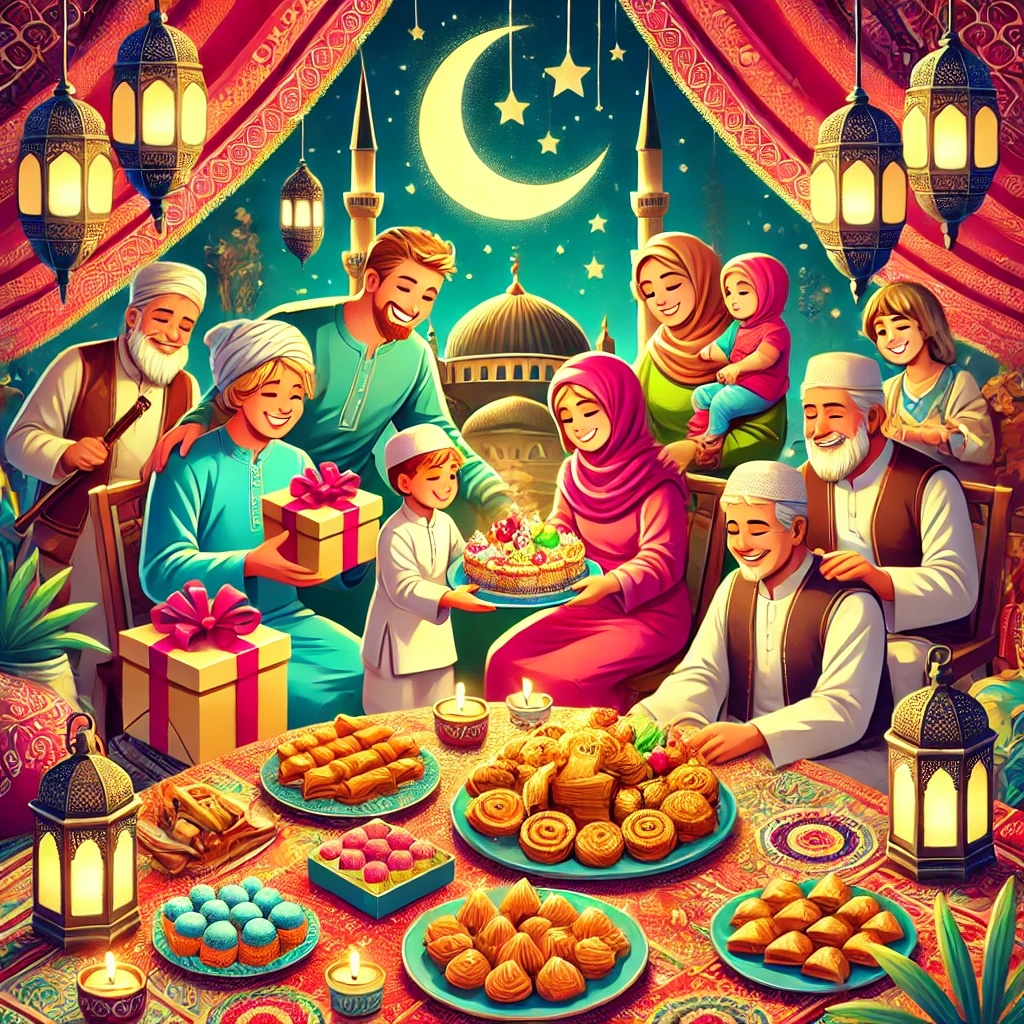Traditions During Ramadan Bayram

Ramadan Bayram is one of the most important religious holidays celebrated by Muslims around the world after the month of Ramadan, which is spent in patience and fasting. This special day offers an opportunity to strengthen bonds between people, assist one another, spend time with loved ones, and celebrate our faith. Although Ramadan Bayram carries the same religious meaning worldwide, different regions and cultures have developed various traditions and ways of celebrating. Here are some of the most common traditions practiced during Ramadan Bayram:
1. Bayram Prayer
The morning of Ramadan Bayram holds special significance for all Muslims. On the first day of Bayram, the "Bayram Prayer" is performed in mosques after the morning prayer. The Bayram prayer reinforces the sense of unity and togetherness among Muslims and marks the beginning of the spiritual atmosphere of the festival. After the prayer, the tradition of greeting one another and praying together is widespread.
2. Bayram Greetings
One of the most prominent traditions of Ramadan Bayram is the exchange of greetings. After the Bayram prayer, people usually visit their elders, relatives, and neighbors to wish them a happy Bayram. Greeting one another enhances love and respect between people and strengthens the spirit of solidarity. Especially children greet their elders by kissing their hands. These greetings sometimes take place face-to-face, while today, they are also exchanged via phone calls or digital platforms.
3. Offering Treats to Guests
Hospitality is highly valued during Ramadan Bayram. During Bayram visits, hosts offer sweets and Bayram candies to their guests. One of the most common treats is "sugar," symbolizing the sweet start to the Bayram. Additionally, traditional sweets such as baklava, kadayif, and cookies decorate Bayram tables. Hospitality is another important element that reflects the spirit of Bayram.
4. Zakat al-Fitr (Fitr Charity)
Muslims who fast during Ramadan give a charity called "Fitr" on the first day of Bayram. Fitr is a financial aid given to the poor and needy so they can experience joy and happiness during Bayram. This charity strengthens the social solidarity aspect of Bayram and strengthens the bond between the wealthy and the needy. Giving Fitr has become an important tradition that increases communal solidarity and is considered part of the religious observances during Bayram.
5. Wearing New Clothes
The tradition of wearing new clothes on Ramadan Bayram reflects the spirit of renewal and freshness of the Bayram. Children and adults typically buy new clothes before Bayram and eagerly wait to wear them on this special day. New clothes symbolize not only physical renewal but also spiritual rejuvenation. Wearing new clothes on Bayram is seen as a symbol of reinforcing love and respect.
6. Giving Gifts to Elders and Children
Exchanging gifts during Bayram is a way for both the elderly and the young to express their love for one another. Children typically receive "Bayram money" from their elders. These small gifts make the Bayram even more special. Furthermore, grandparents may gift children new clothes or sweets. Gift-giving is an important tradition that strengthens family bonds and shares joy and happiness during Bayram.
7. Visiting Family and Friends
Bayram is also an opportunity to show our affection for our loved ones. Family visits, relative visits, and spending time with friends are essential parts of Bayram. During Bayram, people come together, reminisce about happy memories, and enjoy their time together. In addition, visits to the sick, the elderly, and those who are alone are an important part of the Bayram spirit.
8. Bayram Feasts
Bayram feasts are moments when food is served in its most special form, and these feasts are usually prepared with great care. These gatherings are not only about eating but also symbolize sharing and unity. Traditional dishes include pilaf, meat dishes, pastries, sweets, and tea. Bayram tables reinforce joyful moments spent with loved ones.
9. Village Visits
Many people, especially those with village roots, visit their villages during Bayram to greet their relatives and the village people. In villages, the traditions of Bayram are even deeper, and people visit one another more frequently. Going to the village during Bayram and participating in traditional activities allows children to experience the festive atmosphere in the best possible way.
Conclusion
Ramadan Bayram is not just a religious holiday; it is also a celebration that brings people together, shares joys and sorrows, and encourages helping and solidarity. The worship and fasting observed during Ramadan are crowned with joy and happiness during Bayram. Bayram strengthens family ties, brings people closer, and nurtures the spirit of solidarity within the community. These traditions form the essence of Ramadan Bayram and are passed down from generation to generation.










